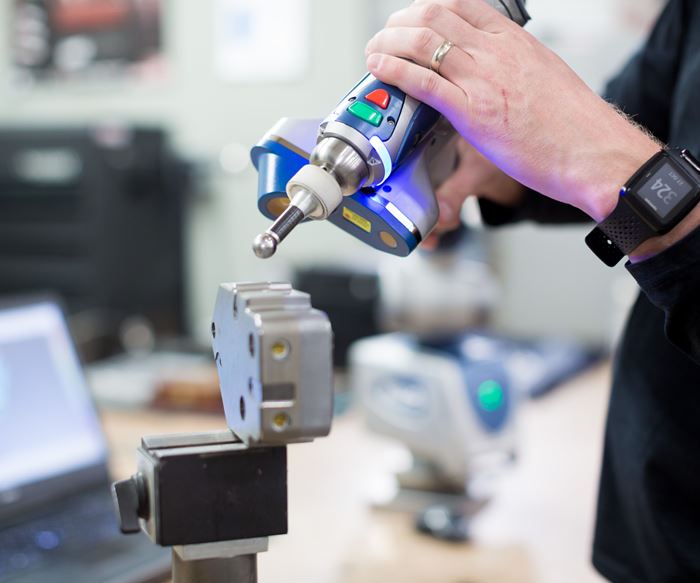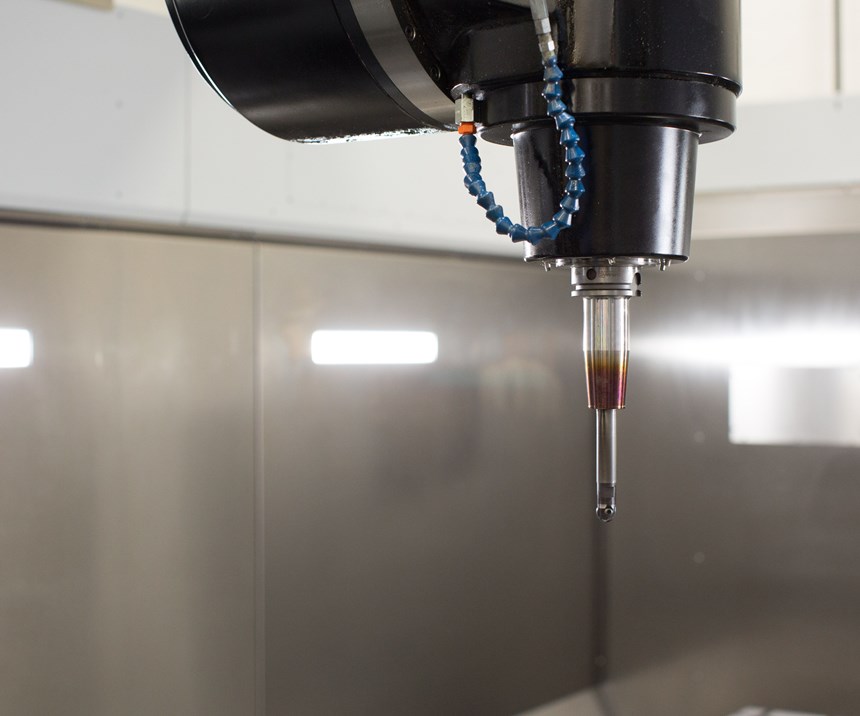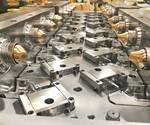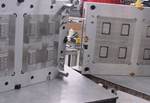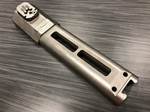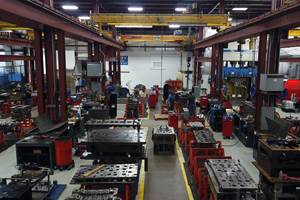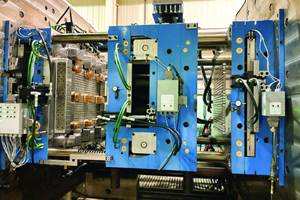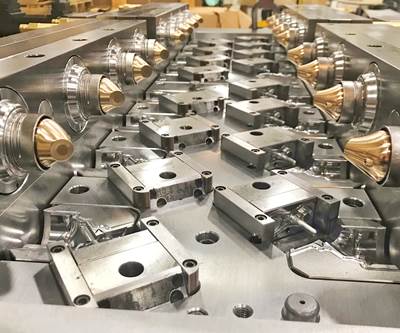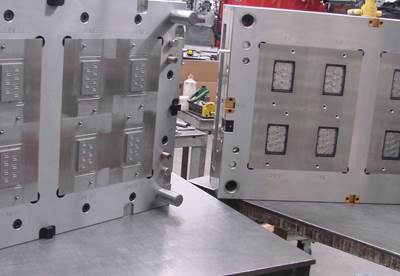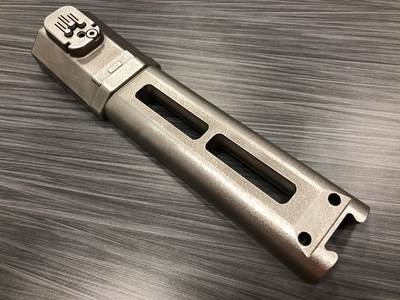A 'Quality Without Compromise' Mindset and A Diverse Customer Base Gives Delta Mold More Peaks Than Valleys in Business
Quality-driven processes and focus on diversity in the markets served are key to Delta Mold’s continued success.
This video provides a snapshot view of the shop floor at Delta Mold Inc. in Charlotte, North Carolina.
You serve a very diverse customer base. Is that by design?
Ernie Young, vice president of sales: Yes, we have a strategy for revenue generation that has been cascaded down via ownership and it enables us to execute calculated growth year over year. A key aspect about the strategy and where we sit in the marketplace is that no specific industry takes up more than 25% of our annual revenue. No single customer is larger than 20% of our annual revenue. For example, if the agricultural market spikes one year and drops the next, we typically see retail or another market spike the next year to balance workload and revenue year over year.
No specific industry takes up more than 25% of our annual revenue. No single customer is larger than 20% of our annual revenue.
Your company emphasizes its “Quality Without Compromise” mindset. Would you say that this is a primary competitive advantage for Delta Mold?
Young: We are very technology driven related to our design and manufacturing. For example, last year we made a significant investment in our machining department, not only from a capital equipment perspective but also to improve our software. We purchased and implemented Tebis in January of 2018 to optimize our five-axis machine centers. We also purchased a Toshiba 45,000-pound capacity boring mill, and this year, we brought in a new TOS 65,000-pound capacity boring mill. The technology not only helps us produce some of the highest quality molds you're going to find out there, but also it helps us to decrease our lead times.
In addition, we are ISO 9001:2015 certified. A year ago, we brought in a very talented and experienced quality manager named Glenda Chapman. Glenda has helped us build a robust quality management system (QMS) that ensures that every portion of the mold build process is being validated before it can move on to the next step. As we begin our overall mold design, we have a system in place to confirm that we are designing to our customer’s specification prior to it moving to cutter-path design, where our machining group uses a process that produces the most efficient way to cut steel. Then as we're doing our roughing, our semis and finishing, each step has a very specific validation process and requires an approval before it can move to the next process within our mold build and machining areas.
Technology is dynamic, and our business is dynamic, too.
To aid in adhering to these processes, we instituted a new, cloud-based ERP system called Plex that is more of a business operating system (BOS). Our intention was to develop a BOS that allowed us to control all aspects of our business. Inside of that BOS is our QMS. As we move through the specific projects the QMS is enforced from process to process. Finally, every job that we build goes through a full Mold Flow analysis using Moldex3D. This service is performed in-house at our cost and is presented to our customers for approval. Also, within our QMS we have an engineering change request (ECR) procedure. If there is an engineering change that comes in while the job is in process, that job would be placed on hold and all information would be reviewed by engineering. Engineering is responsible for approving or rejecting the changes and getting the correct job specs back into production.
Continuous improvement has always been the primary focus at Delta Mold. Technology is dynamic, and our business is dynamic, too. As we find nonconformances internally we study the nonconformance, we decipher what the root cause is, and then we attack the root cause with permanent corrective actions. The goal at the end of the day is to get better every single day. Implementing a new ERP system and developing a more stringent quality management system was the result of actions taken so that we could get better and more efficient at what we do and produce a higher quality product for our customer.
Describe the types of equipment used to maintain the high level of quality customers demand for their molds.
Young: Our five-axis milling machines, mainly Parpases, will inspect at start-up using 3D indicators. While in process our machines will revalidate once all surfaces are developed and then again when picking or final finishing is completed. We also have a FaroArm that is portable and able to scan in 3D if we need something inspected in process. The FaroArm is primarily used with either our PolyWorks Inspector industrial 3D metrology software or Geomagic Design X software, for reverse engineering and final validation during mold assembly. We plan to invest in another FaroArm and a coordinate measurement machine (CMM) within the next six months.
How does Delta Mold’s quest for quality translate into mold trials and part sampling?
Young: While we do not run full production, we do provide mold trials and part sampling for 100% of the tooling we manufacture. We currently have three injection molding machines; a 2,500-ton Milacron with co-injection capabilities, a 950-ton Toshiba and a 160-ton two-shot-capable Engel. The Engel is a rotational two-shot, tie bar-less with an integrated robot and conveyor system.
Our goal is to ship zero nonconforming product out of our facility, and it takes a dedication to continuous improvement within the entire company to get there.
Our product sampling team utilizes the RJG eDart System to help develop a stable and repeatable process. For smaller parts, we can develop and provide our customers with full process verification and validation. Everything from the end of arm tooling all the way through the actual molding process itself. By doing so, we give our customers a head start on internal process development. From what we've seen in the marketplace, not many shops are working alongside the customer building processes prior to shipping. We feel that that's an important part of what we do because at the end of the day, our customers need to make quality product. We know how busy a production facility is. It's very expensive, at least for our customers, to do a lot of the R&D that mold validation requires. Our molding machines are here for validation purposes. If we can get some of those expenses off their plate and do it within our facility, we feel like it's a benefit for our customer.
A big reason for why we are so dedicated to our quality management system is because we want to make sure that a first path yield number that is greater than our target of 95%. Our goal is to ship zero nonconforming product out of our facility, and it takes a dedication to continuous improvement within the entire company to get there. Part of getting to that level of quality and consistency is to make sure that we are doing those validation processes for them. That's why we have our 2,500-ton Milacron and our 900-ton Toshiba presses situated next to our final assembly area. Our mold builders are right there watching how the molds perform at T1 and beyond and standing next to our customers hearing what their concerns are as we are going through the trial process.
Related Content
Indiana Mold Builder Decatur Mold Offers a History of Grit and a Future of Innovation
Decatur Mold Tool and Engineering Inc. serves as a tooling tour guide, helping busy tooling managers reduce uncertainty, lighten workload.
Read MoreGrowth Requires Mold Builder/Molder to Shift Tooling Focus to Maintenance, Repair and Replacement
The results of aligning awareness and acceptance across departments to balance new tooling and quick response needs.
Read MoreHigh-Technology, Diversified Mold Builder Has Its Eye on Improvement
Commitment, engineering expertise, flexibility, quality and customer service help Wisconsin moldmaker Triangle Tool LLC discover ways to grow and build molds faster.
Read MoreInnovation, Diversification and Integration Guide Mold Builder Growth
Quality Tool and Die team discusses the journey from a small automotive tool shop to a diversified full-service moldmaking and plastic production facility.
Read MoreRead Next
Strong Design and State-of-the-Art Equipment Gives Omega Tool a Competitive Edge
Design expertise, supported by cutting-edge CNC, materials, software and inspection enables Omega Tool Inc. deliver notably robust molds.
Read MoreBuss Precision Mold Reaps Success from Building Complex and Reshored Molds
A shift in core competencies, including re-shored molds, gives Buss Precision Mold an edge on high-precision moldmaking and laser-focused customer service.
Read MoreCapability to 3D Print H13 Delivers Robust Tooling
Direct metal laser sintering H13 material plays a big role in how this company has differentiated itself from the competition.
Read More
